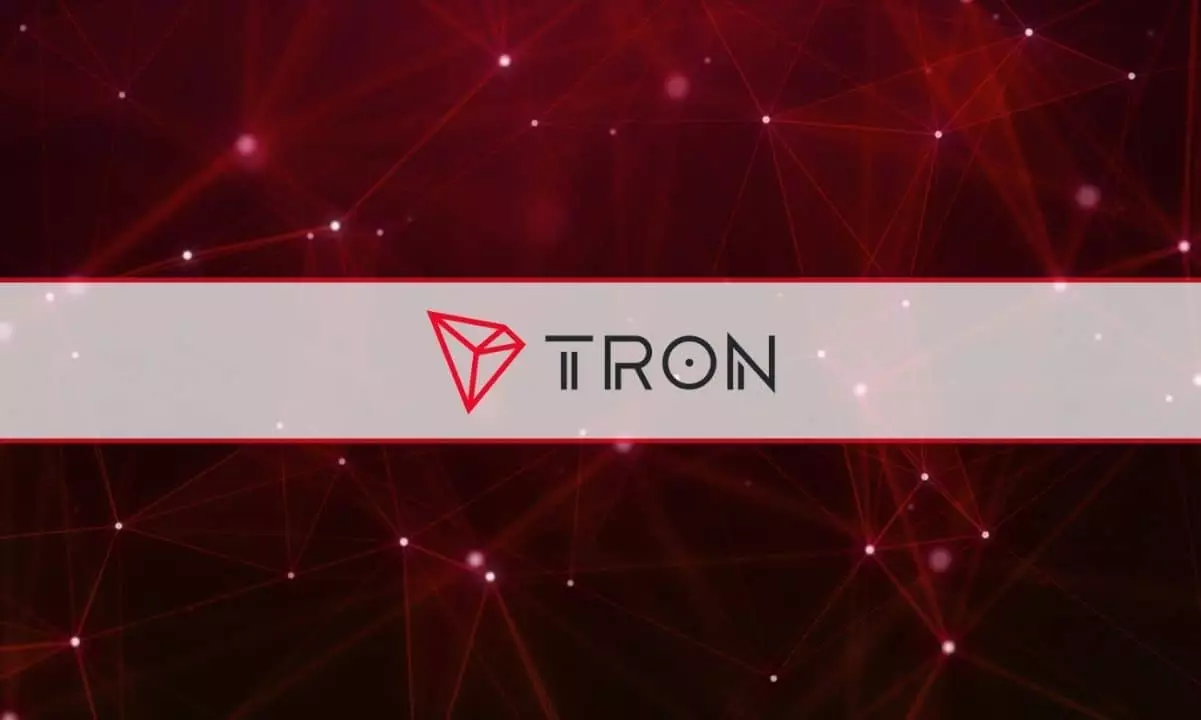In a startling development, the Hamas terrorist organization has discovered a new avenue to finance its attacks against Israel – the Tron cryptocurrency network. Previously reliant on Bitcoin, the Iran-backed militant group has now shifted its activities to Tron, a blockchain platform that offers faster transactions and lower fees. This significant change in strategy has caught the attention of financial crime experts and blockchain specialists, who have identified an alarming trend. More and more designated terror groups, both in the United States and Israel, are conducting their crypto transfers on the Tron network.
Israeli security agencies have observed a surge in the number of Tron wallets connected to terrorist organizations or used for criminal activities. According to the Israeli National Bureau for Counter-Terror Financing (NBCTF), between July 2021 and October 2023, they froze over 143 Tron wallets believed to be associated with such groups. This sharp increase in the seizure of Tron wallets coincided with a corresponding decline in the targeting of Bitcoin addresses. It appears that organizations like Hamas and its allies are beginning to favor Tron for its stability, affordability, and faster transaction times.
Hamas, along with Lebanon’s Hezbollah and the Islamic Jihad, enjoys the backing of Iran, forming an “Axis of Resistance” coalition that is vehemently anti-Israel and anti-Western. Notably, the NBCTF discovered that out of the 87 Tron wallets seized this year, 39 were linked to Hezbollah, while 26 were connected to Islamic Jihad. These groups actively participated in Hamas’ assault on Israel. The national security agency also froze 56 wallets directly tied to Hamas and, in March, seized 46 wallets associated with Dubai Co. For Exchange, a financial company based in Gaza.
Curiously, Israel has not publicly disclosed the specific crypto networks or assets involved in the seizure of Dubai Co. However, sources interviewed by Reuters revealed that they had been using Tron. While they vehemently denied any affiliation with Hamas or Islamic Jihad, claiming the accounts were for their personal or business finances, the association raises concerns. It is noteworthy that Tron has become the dominant blockchain for Tether (USDT), and the stablecoin issued on the Tron network has reached all-time highs in 2023.
In April of the same year, Hamas announced that it would discontinue accepting Bitcoin contributions and donations due to concerns for donor safety. Although the group did not explicitly mention Tron in its statement, multiple sources claim that it would still be accepting funds in Ether (ETH) and Tether (USDT). This revelation sheds light on the evolution of terrorist financing in the digital age and highlights the allure of cryptocurrencies as a means for illegitimate activities.
The shift from Bitcoin to Tron as a preferred cryptocurrency by terrorist organizations exemplifies the growing need for enhanced regulation and scrutiny in the crypto world. Tron’s stability, faster transactions, and lower fees have made it an attractive choice for illicit actors, allowing them to finance their operations with relative ease. As security agencies and financial experts grapple with these emerging challenges, it becomes increasingly crucial to develop robust measures to identify, track, and combat the misuse of cryptocurrencies for criminal or terrorist purposes. Only through concerted efforts can we hope to minimize the risk posed by these nefarious activities and protect the integrity of the digital financial ecosystem.









